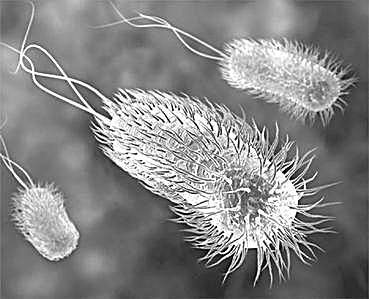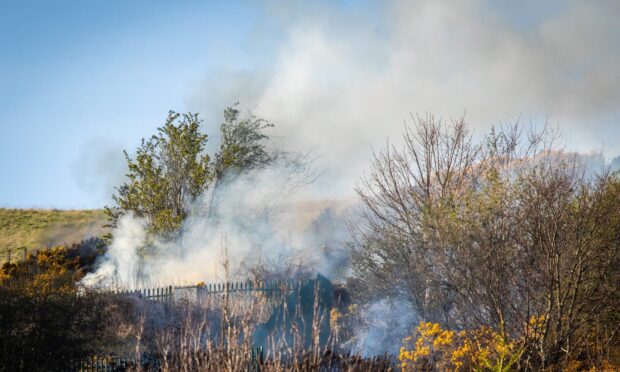Had NHS Fife acted sooner, a patient may not have gone through the agony of developing a deadly flesh-eating bug.
A probe was launched after the woman, known only as Miss C in official ombudsman findings, lodged a complaint about the care and treatment she received at the Victoria Hospital.
She said she was discharged too early when she arrived at the hospital with symptoms relating to an infection in her groin. She had to be readmitted later that day.
Miss C also complained an abscess which formed in her groin was inappropriately drained at her bedside. She also claimed there was a delay in diagnosing necrotising fasciitis.
Having taken advice from a surgeon and a consultant physician, the ombudsman found Miss C was inappropriately discharged on her first admission as she had been newly diagnosed with diabetes and had a temperature.
It was advised it could have been helpful for Miss C to have had input from a diabetologist and earlier surgical management of her skin infection.
The ombudsman also criticised the documentation of timings in her medical records as poor.
The investigation also concluded the drainage procedure was not reasonable as pain relief was not documented and the signs present at this point – like skin blistering and fluid-filled tissue – were not reasonably acted upon.
The ombudsman also said there was an unreasonable delay in diagnosing the disease, which can be fatal.
“When there were clear features of this occurring, the appropriate action was not taken in a timely manner”, the report said.
The investigation said surgical incision and drainage should have been done at a far earlier point than actually happened.
“Had surgical treatment been carried out at an earlier point necrotising fasciitis may not have occurred,” the ombudsman said.
Upholding the entire complaint, the ombudsman told NHS Fife to apologise.
He also made recommendations for improvement.
NHS Fife Chief Executive Paul Hawkins said: “We have formally apologised to this patient and we acknowledge that the care provided fell short of our high standards.
“NHS Fife strives to provide the best possible experience to all patients and we take instances where this may not have been the case very seriously.
“Since this event we have increased staff awareness around skin infection and introduced clearer guidelines on infection management.
“The SPSO has advised it is satisfied that we have carried out its recommendations.”
Deadly flesh-eating bug
Necrotising fasciitis is often referred to as the flesh eating bug.
It is a rare but very serious bacterial infection which hits the tissue lying underneath the skin and the surrounding organs and muscles.
It can start from a relatively minor injury – even something as innocuous as a small cut – but it worsens rapidly and can be life threatening if not recognised and treated quickly.
Symptoms develop over hours or days and can often be similar to other conditions like flu.
Early signs could be a small cut with intense pain which is out of proportion to actual damage to the skin and a fever.
Later the patient may develop swelling and redness, diarrhoea and vomiting and dark blotches which turn into fluid-filled blisters.
If left untreated the infection could spread rapidly throughout the body and cause dizziness, weakness and confusion.
It’s vital medical help is sought immediately as it can progress quickly and lead to problems such as sepsis or organ failure.
Even with treatment, it is estimated one or two in every five case are fatal.











